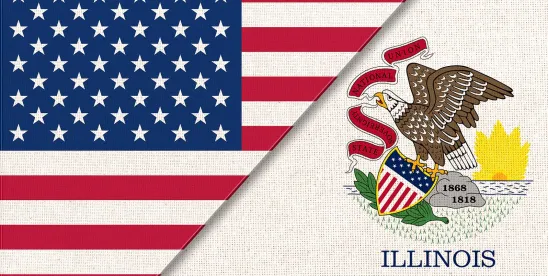On May 31, 2025, the Illinois General Assembly passed House Bill 2755, which contains three amnesty programs the state estimates will substantially increase its coffers. Illinois Governor JB Pritzker signed the bill into law on June 16, 2025.
General Amnesty Program (35 ILCS 745/10)
The Illinois Department of Revenue (IDOR) will run a general amnesty program from October 1, 2025, through November 15, 2025. During this period, taxpayers who pay “all taxes due” to the State of Illinois for any taxable period ending after June 30, 2018, and before July 1, 2024, will have all associated interest and penalty charges waived.
IDOR regulations provide key details, including:
- “Eligible tax liabilities” include any taxes (other than the motor fuel use tax) that are imposed by the State of Illinois and collected by IDOR.
- Taxpayers can selectively participate in the program by paying all taxes due for an eligible tax liability (e.g., income tax but not sales tax) or for a particular tax period (e.g., 2022 but not 2023).
- Specific procedures for amnesty participation by taxpayers under audit, with disputes pending in the Fast Track Resolution Program or before the Informal Conference Board.
- Amnesty can also be granted to taxpayers with civil cases pending in state courts, in administrative hearings, or at the Illinois Independent Tax Tribunal, provided the litigation is dismissed before the end of the amnesty period by agreed order entering judgment in favor of IDOR.
- Taxpayers can participate by making estimated payments of the taxes due, including additional Illinois taxes that will result from a federal change that has not become final.
- Taxpayers participating in the amnesty program may claim a refund for an overpayment of an established liability based on an issue that is not an amnesty issue or of an estimated payment, including one based on an estimated federal change.
We expect IDOR to publish additional guidance and forms on its website prior to the program’s October 1, 2025, inception.
Franchise Tax Amnesty Program (805 ILCS 8/5-10)
The Illinois Secretary of State will run a franchise tax amnesty program from October 1, 2025, through November 15, 2025. The program applies to franchise taxes or license fee liabilities for any tax period ending after June 30, 2019, and on or before June 30, 2025. Payment of all franchise taxes and license fees due for any taxable period will result in abatement of any associated interest or penalties.
Notes:
- There are no regulations related to the Franchise Tax Amnesty Program.
- The Franchise Tax Amnesty Program has much more limited eligibility than IDOR’s General Amnesty Program. Taxpayers who have received interrogatories from the secretary’s Department of Business Services or that are a party to any civil, administrative, or criminal investigation or litigation for nonpayment of franchise tax or license fees are not eligible to participate.
The Secretary may publish additional guidance and forms on his website prior to the program’s October 1, 2025, inception.
Remote Retailer Amnesty Program (35 ILCS 120/2-13)
IDOR will run a remote retailer amnesty program from August 1, 2026, through October 31, 2026. During this time, IDOR will waive all interest and penalties associated with a remote retailer’s payment of a “simplified retailers occupation tax rate” for taxes due for January 1, 2021, through June 30, 2026.
Notes:
- The “simplified retailers occupation tax rate” is a blended rate equal to 9% for sales subject to the state’s general 6.25% tax, and 1.75% for sales subject to the 1% tax (generally food and drug items).
- Taxpayers must pay all taxes due at a simplified rate for the relevant period to obtain a penalty and interest waiver, either up front or via an approved repayment plan.
- Registration with IDOR and payment of taxes on a going-forward basis is required.
- Participating taxpayers must file returns for the relevant period but do not have to complete Form ST-2, an often-burdensome form that requires reporting of sales by specific locality.
- Local units of government do not play a role in the acceptance of applications and do not have the ability to make assessments in addition to accepted payments.
- Participation in the program would eliminate a remote retailer’s ability to challenge the constitutionality of IDOR’s assessment of destination-based local tax for the time period resolved by amnesty.
We expect IDOR to issue regulations and publish forms on its website prior to the program’s August 1, 2026, inception.





 />i
/>i
